Anxiety is an excessive and persistent feeling of worry and fear about everyday situations. There are five major types of anxiety disorders: Generalized Anxiety Disorder, Obsessive-Compulsive Disorder, Panic Disorder, Post-Traumatic Stress Disorder, and Social Anxiety Disorder.
| Types of Anxiety Disorders | Description | Symptoms |
| Generalized Anxiety Disorder | Individuals with GAD usually have excessive worry and fear for at least 6 months. They may be anxious about a variety of things, such as work, relationships, and personal health. This can have a big negative impact on their life. |
|
| Obsessive-Compulsive Disorder | Individuals with OCD have uncontrollable recurring thoughts (obsessions) and/or behaviors that they feel have to repeat consistently (compulsions). | Common Obsession Symptoms
Common Compulsion Symptoms
|
| Panic Disorder | Individuals with a panic disorder usually have recurrent panic attacks that would occur unexpectedly. A panic attack is a sudden intense wave of fear that occurs abruptly or can be triggered by something else, such as an object or situation that you fear. |
|
| Post-Traumatic Stress Disorder | PTSD usually develops after a person experiences or witnesses a traumatic event, such as war, sexual violence, natural disasters, or a serious accident or injury. |
|
| Social Anxiety Disorder | Individuals with social anxiety disorder usually feel anxiety or fear in social situations, such as meeting new people, being in a job interview, or dating. |
|
It is common for individuals to have anxiety after a traumatic brain injury (TBI). A person with TBI may have difficulty concentrating and solving problems, which may cause him or her to feel overwhelmed and anxious. A person with TBI may also have too many demands, such as returning to work, that may put too much pressure or stress on him or her. In addition, situations that require a lot of attention and information processing, such as crowded and noisy environments, can make a person with TBI anxious.
However, there are general strategies that individuals with TBI can use to cope with anxiety. These are:
- Yoga or meditation
- Exercise regularly
- Practice deep breathing exercises
- Eat well-balanced meals
- Get good sleep, i.e., sleep at least 8 hours a day
- Limit alcohol or caffeine intake
- Recognize what triggers your anxiety
- Share your fears or worries with people who you are comfortable with
- Journaling
References:
https://www.nimh.nih.gov/health/topics/anxiety-disorders/index.shtml
https://msktc.org/tbi/factsheets/emotional-problems-after-traumatic-brain-injury

